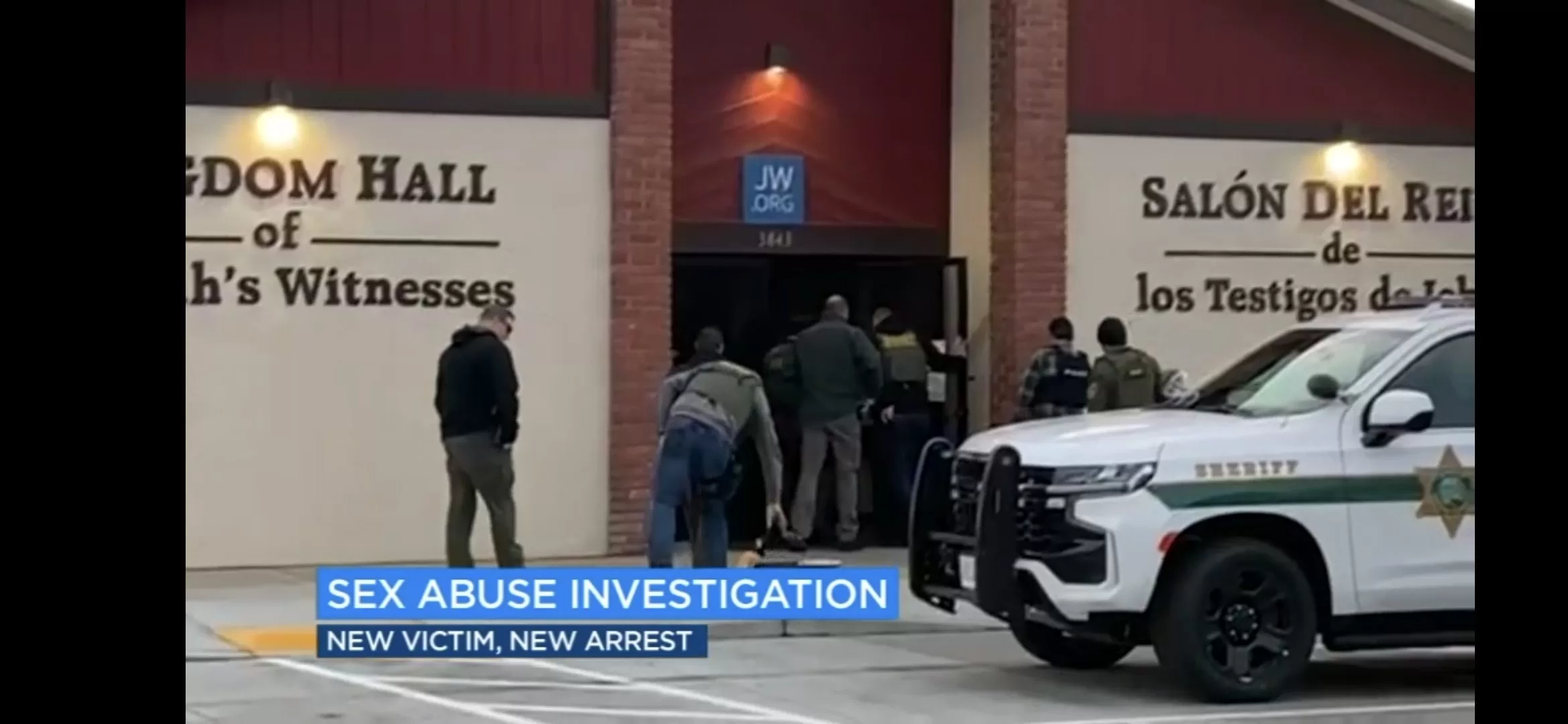More than 11 years revealing secrets because there is no excuse for secrecy in religion – w1997 June 1; Dan 2:47; Matt 10:26; Mark 4:22; Luke 12:2; Acts 4:19, 20.

Photo - ABC30 Action News -Search for Child Sexual Abuse Documents - January 2022.
Fresno County sheriff's detectives raid Kingdoms Halls in Kingsburg and Clovis, California, USA
Originally published in Dutch by NOS nieuws on December 6, 2018.
Last month, the police raided seven buildings as part of the investigation into sexual abuse within Jehovah's Witnesses. The Public Prosecution Service confirms this after reporting from RTL News.
The raids took place in Emmen, among other places, at the headquarters of Jehovah's Witnesses. In addition, two community buildings - or so-called kingdom halls - and four homes of the religious community were searched.
Agents were looking for documents from internal 'lawsuits'.
Internal litigation
Jehovah's Witnesses has an internal system for handling cases of abuse. A complaint is submitted to a special committee, after which a procedure is started that is not public.
Any perpetrators will be tried by the society and not reported to the police. Reports of cases are not shared with the judiciary.
At the beginning of August, Jehovah's Witnesses refused to hand over a document to the Public Prosecution Service containing the confession of a perpetrator in a child abuse case.
'Legally special'
In particular, the two raids on the kingdom halls, where members of Jehovah's Witnesses gather for meetings, are "legally special," says professor of sanctions law Henny Sackers, affiliated with Radboud University.
"The judiciary has traditionally been reluctant to storm into churches and the law stipulates that the police, for example, are not allowed to simply enter a church if there is a meeting."
-Henny Sackers, professor of sanctions law According to Sackers, these are provisions that date from a time when the House of Representatives was still largely composed of confessions and there were fewer organizations that called themselves religious.
"Now there is a great diversity of organizations that believe they are above the law for religious reasons," says Sackers.
Professor of Church History Paul van Geest (Tilburg University) therefore finds the raids less special. "We have a complete separation of church and state. So the state looks at every church as a society and if something is wrong there, it is addressed."
'Necessary for research'
The Public Prosecution Service is currently investigating nine reports it received of sexual abuse within the religious community.
"In a number of cases it was suspected that information about the internal legal proceedings in these cases was present in files that were located in these buildings," the Public Prosecution Service said about last month's raids. According to the Public Prosecution Service, this information is "necessary" in the criminal investigation.
It is unclear whether the documents sought were also found during the raids. The Public Prosecution Service will not make any further statements about the case.

Lester Somrah writes about the beliefs and practices of Jehovah’s Witnesses on his social media platforms and was baptized as a member in 1998.